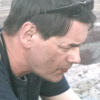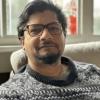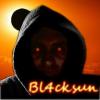
Posted
While working on Synfire 2.0, a few new parameters have emerged. Some of them will be visible to the end user and therefore need a sensible name. Here's one that I'm somewhat unsure how to name it. Feedback is welcome.
The parameter 'Diction' alters the length of notes within the range from extreme staccato (short) to legato (connected) in relation to the span between the note onset and the onset of the following note:
- Positive values > 0 set the length from the onset (zero plus x)
- Negative values < 0 set the length from the onset of the following note (legato minus x)
- Zero keeps the original length unchanged
At first this might not sound spectacular, but the effect is musically very useful and natural, since the parameter works relative to existing rhythm. It makes for great expressive articulations and rhythmic variation. I've tested this with bass phrases and was blown away.
Now, the perfect name for this parameter would be 'Articulation', but that's already used for the control of sounds. Browsing the thesaurus brought up 'Diction', although I'm not sure how this works for native speakers. It's a rarely used word.
Any ideas?
Tue, 2020-10-27 - 16:16 Permalink
This would really be best called articulation. Phrasing on first sight seems to be ok, but articulation is one sub-term of phrasing (Phrasing is "volume, rhythm, articulation and pauses"), so it would not be correct.
I don`t know in the moment, what the control of sounds effects, but perhaps that would be better called phrasing and this way the term articulation could be used. Though I don`t know, how that interferes with the fact, that it is already used.
Thu, 2020-10-29 - 17:15 Permalink
André,
"DICTION" is, in my opinion, a good synonym for "ARTICULATION".
"Articulation" is the "diction" in instrumental music.
( (https://www.smartmusic.com/blog/articulation-the-diction-in-instrumenta…) ).
It is a nice, short and singular word.
But actually "articulation" would have been the best word.
Incidentally, the function is a nice addition to Synfire!
Sun, 2020-11-01 - 18:55 Permalink
I think that the new "Diction" parameter, as you have specified it, might be a bit difficult to handle, as it will obviously lead to jumps in tone length when a diction parameter curve crosses the zero line. Thus, at values just above zero, the tone duration would be almost zero (zero plus x), at values just below zero it would be almost legato (legato minus x), and at exactly zero the tone duration corresponds to the original note length. Is that really the intended behavior?
When subdivided into two separate parameters as I would suggest, the first parameter would only control the distance from the end of a note to the beginning of the next note (legato minus x). Thus, if the values are positive, there will be an adjustable gap between the notes. For zero it would be just legato. This parameter could therefore be called "Portato". Negative values would create overlapping notes, which also sometimes can be useful.
The second parameter would add/subtract offset values to the original note length. That parameter could be called "Elongation" as already suggested.
As for the behavior of "Diction" for positive values as you have described it ("set the length from the onset, zero plus x"): Isn't that the same as the "Length" parameter, which we already have?
And I have one more question: How would you call the parameter in the German version of the software? Diktion? I don't know how the English native speakers feel about "Diction", but in German the term "Diktion" would be at least... how shall I put it diplomatically... not very intuitive.
Mon, 2020-11-02 - 19:34 Permalink
Thanks a lot everyone! Some great suggestions you have to ponder about.
It's good to know that diction is already somewhat familiar in orchestral music. As said, Articulation would be probably best, if it didn't conflict with its widely popular use for MIDI-based sound switching.
This parameter is really only about the rhythmical interpretation of a fixed grid of steps, so something along the lines of accentuation might perhaps also work.
I think that the new "Diction" parameter, as you have specified it, might be a bit difficult to handle, as it will obviously lead to jumps in tone length when a diction parameter curve crosses the zero line.
The parameter is meant to take discrete values placed at rhythmically meaningful positions (interpolation=recent), rather than a continuously drawable curve. You would not sketch it with the mouse, but pick a position and type a value where you need it, not unlike the sustain pedal. I envision a popup menu with templates and - of course - a KIM factory that generates the parameter for all thinkable situations.
The Portato vs. Elongation thought makes sense. For rhythmical articulation alone, we could easily have six or more parameters and all of them would be useful. I'm just not sure how that pans out when 90% of the time they are meant to work in combination. We could really use compound parameters. Sort of a hyper edit mode for a multi-dimensional parameter .... (another rabbit hole)
The current Length parameter is different in that it is absolute and has no knowledge of the distances between notes. The new parameter will never go longer that legato and never shorter than staccato, which makes it portable across phrases.
Oh, and there is no German translation of parameter names anyway, so yes, the awkward 'Diktion' will not be something to worry about ;-)
Finally, after weeks of digging into one rabbit hole of code after another, I will be ready to show something exitingly new very soon!
Thu, 2020-11-05 - 14:34 Permalink
Was quite inspired by this, so took it on as a challenge to implement it in Python to use with Synfire. Apart from having to set the length of legato manually for all notes in the phrase, it's quite gamechanging. Sorry Andre, couldn't wait!
Sat, 2020-12-05 - 17:43 Permalink
I may add that, intuitively at first, I used the name 'Stops' or 'Stop' while coding KIM factories. Because that is its most obvious effect, that it stops otherwise sustained nodes short in order to emphasize rhythm at certain points in a measure. This is also how a bass or guitar player might call the playing technique: stopping or damping off notes.
The race is still open, but this might be also one of the candidates.
Sat, 2020-12-12 - 12:08 Permalink
Meanwhile I dropped 'Diction', as it is too broad a concept for the narrow effect it produces.
Today I'll have to pick one, or things will get complicated later on. More candidates I came across:
link
bond
clip
truncation
I am amazed how many short, concise words the English language has to offer. Whatever the pick will be, it should go nice along the already existing rhythm-related parameters:
Step, Velocity, Length, Rhythm, Shift, .... Clip?
On a KIM Factory user interface, a check box reads "Lock Steps", if you want to keep the currently generated steps. So in that context, how about
Lock Stops
Lock Clips
Lock Bonds
Darn. I guess I'll just pick one and we all will get used to it ;-)
Sat, 2020-12-12 - 15:39 Permalink
Articulation would still be best term, pretty much all other words are not self explanatory. I back the former suggestion to call it something like Duration Articulation or similar to distinguish it from the sound control one (which is also approriately called Articulation).
Sun, 2020-12-13 - 12:31 Permalink
Make up a word.... Dart, DArt or even D-Art. Yes it means nothing (in this context) but it is short and a quirky abreviation for Duration Articulation. You could even add a hover text that says Duration Articulation if you are worried about critism from new users. We will all be experiementing with the check boxes anyway and learn what each does audibly.
Mon, 2020-12-14 - 11:29 Permalink
How about 'Bonding', as in the extent to which it is binding to the next note.
Good point. Which brings back to mind an earlier suggestion: Flow. The flow of sound between notes ranging from staccato to legato.
Rhythm, Step, Skip, Length, Flow, Shift, Velocity
Sounds about fine and makes sense in exactly that order:
- Rhythm is the superset of all possible Step.
- Step is a selection out of that superset.
- Skip determines which of Step to skip for a particular instrument, so you can have multiple instruments following the same Step at a different pace.
- Length suggests absolute note lengths that are potentially overlapping (e.g. chords).
- Flow forces those into a monophonic flow with varying gaps in between.
- Shift shuffles the result back and forth, e.g. steal time, humanizers, etc.
- Velocity adds dynamics.
I like it. It's abstract enough not to be confused with something else, yet suggestive enough to be remembered.
Sun, 2022-04-10 - 12:05 Permalink
I just took a look at the new documentation to get an idea of the new features. One question about the phrases generated by Factories:
Won't it be possible to convert an already existing normal phrase into a generated phrase, i.e. to parameterize it, so to speak? This way the Factories could be used to generate musically meaningful variations of existing phrases. As an extension of the Variation parameter, sort of.
If this will not be possible (which I suspect), then that would be a feature request.
Sun, 2022-04-10 - 16:43 Permalink
Flow is now final:
(https://docs.cognitone.com/synfire/EN/parameters/Flow.html)
Factories are way, way deeper than a stochastic model (probabilities). Reverse-engineering a phrase is even harder than reverse-engineering harmony. If you have many examples of a phrase, it might be possible to grab an idea of its its rhythm and melodic shapes. I did that for drums and it was fun. There's not a factory for that yet, but it's doable.











